Under The Wire
Peter Lauer
Barrel X Saar Feinherb Riesling 2019
One of the best Riesling for the money (under $30). Sweet but not too sweet. Green apple, honey, some minerality and zip. Great with food. Just great. Would buy again soon to have a bottle on hand. — 5 years ago
Under the Wire
Alder Springs Vineyard Sparkling Chardonnay 2015
Exotic and fun. — 5 years ago
Château Léoville Barton
Saint-Julien Red Bordeaux Blend 2004
VINTAGE: 2004
BOTTLE: 375ml
APPEARANCE: Deep red, garnet meniscus, viscous legs.
NOSE: Allspice, white pepper, bell pepper, dark fruits.
MOUTHFEEL: Round, medium - acidity, medium + tannins.
PALATE: Cinnamon, tomato leaf, leather, hints of vanilla.
FINISH: Long with sandalwood throughout and some cocoa at the very end.
NOTES: Picked this up in December of 2017, thinking the 375 bottle will have made this ready to drink immediately. Was not wrong, it is drinking well, but there is sufficient backbone left in this wine to age for many more years to come, even in a 375. Nice layers of complexity that were fun to tease out, but still many notes that I don’t yet have the ability to properly identify. I look forward to trying again with more years under its belt. — 7 years ago
Marcel Lapierre
Morgon Gamay 2014
Mathieu has taken over winemaking and has done a fabulous job. This was all bright mid red fruits with some hues of blue and soft earthiness. Fresh & pure wire to to wire and a really nice pair with Hedy’s amazing spicy pumpkin soup. @ Plate & Bottle. Photos of, those old narly Gamay vines, Hedy’s spicy pumpkin soup, Mathieu barrel tasting and a little fireside bubbles & cheese before dinner. — 8 years ago
Charles Krug
Napa Valley Cabernet Sauvignon 2014
Established in 1861 as the first winery in the Napa Valley by Prussian-born Charles Krug. Today the winery remains under the stewardship of the Peter Mondavi Sr Family, who purchased the historic winery in 1943. A blend of 90% Cabernet Sauvignon, 9% Petit Verdot, 1% Merlot, dark red with ripe dark berry scents and sweet spice. On the palate sweet blackberry and cherry flavors with leather and cacao notes. Firm tannins are a bit tight but opened up by the time the bottle was empty. — 8 years ago
Hope Family Wines
Treana Paso Robles Cabernet Sauvignon Syrah 2016
Hope family began their planting’s in 1978 & sold wine under the Hope Family label directly from winery's tasting room. In 1990 the Hope ranches became the sole source of fruit for Liberty School Cabernet Sauvignon. In 1996, they founded Treana Winery. Blend of 75% Cab Sauv & 25% Syrah. Deep Ruby with aromas of sweet berry & spice notes. On the palate flavors of currants and ripe berry with cacao, pepper and vanilla spice. Full body, rich tannins, good balance ending on the spicy side, better after decant. — 5 years ago
Ravines Wine Cellars
Dry Finger Lakes Riesling 2017
Nose has cold green table grapes, tart green apple slice, wet slate, distant petrol, lime peel, under-ripe peach slice and dried tangerine peel.
Palate has dried lime, sweet green apple slice, slate gravel, under-ripe peach, under-ripe pear, bright acidy, medium finish. As the label states, (very) dry. Future bottles should be 2027+ — 5 years ago
Heitz Cellar
Napa Valley Cabernet Sauvignon 2009
Merry Christmas Eve-Eve everyone! 🎄🎅🤶⛄️❄️🎁🍷
On the nose, leap dark currants & cassis with bright red, dark, blue & purple florals at pop & pour. Ripe; blackberries, dark cherry kirsch, plum, mulberries, blueberries, poached & strawberries, black raspberries & raspberries. Black licorice, star anise, dark chocolate bar, volcanic & limestone, steeped fruit teas, dark cola, sweet tarry notes, black, rich, turned earth, mid, dark spices, cinnamon stick, clove, nutmeg, vanilla, barrel shavings with char, dry brush, leather, fresh tobacco, granite, some eucalyptus, mint notes, light, dry herbs with fresh & some withering red, dark, purple and blue, fresh and slightly candied florals.
The body is; round, ripe, & rich. The tension, structure, length and balance are just beginning their sweet spot. The tannins are; rounding, tarry & still chewy. Plenty of life left in the 09...8-10 years. Dark currants & cassis. Ripe; blackberries, dark cherry kirsch, plum, mulberries, blueberries, poached & strawberries, cherries, black raspberries & raspberries. Black licorice, star anise, dark chocolate bar, volcanic & limestone, dry, crushed rocks, dry stems, steeped fruit teas, dark cola, sweet tarry notes, black, rich, turned earth, mid, dark spices, cinnamon stick, clove, nutmeg, vanilla, milk chocolate, mocha, caramel, barrel shavings with char, dry brush, leather, fresh tobacco, granite, some eucalyptus, mint notes, light, dry herbs with fresh & some withering red, dark, purple and blue, fresh and slightly candied florals. The acidity is round & spot on. The ripe, rich, ruby, elegant, balanced & polished finish is splendid and persists nicely on the palate with mid, dark spice on the long set. So much better with this much age. Really delicious tonight!
A steal now at under $35 upon release at Costco.
This wine is close to its peak and will hover there 3-4 years.
Photos of; the Estate, old large oak vats and David Heitz.
— 5 years ago
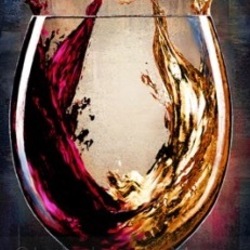

Bass Phillip
Premium Gippsland Pinot Noir 2008
Pale to mid crimson with a Tawny aged Burgundy colour. Aromas of forest Floor Twigs with Asian Spices chiming in. Medium weight palate of profound intensity. Living up to its reputation as Australia’s premium Pinot producer. One should not drink Bass Phillip Premium under 10 years of age. With time the palate became sweeter but at all times delicious with the bouquet becoming more loamy and compost heap. As Australian Wine scribe James Halliday commented “eerily Burgundian.” A Wine to savour over a couple of hours with your partner. — 7 years ago
Château La Lagune
Haut-Médoc Red Bordeaux Blend 2006
On the nose; floral fruits of blackberries, dark cherries, black plum, plum, blue fruits, black raspberries, limestone, dark raspberries, black cherry cola, dark rich soil, vanilla, cinnamon, volcanic minerals, anise, violets and fresh red floral bouquet. The body is full and the tannins are about half resolved. The structure is still fairly big as is the tension with good length. The fruits are rich & ripe; blackberries, dark cherries, black plum, plum, blue fruits, black raspberries, limestone, dark raspberries, black cherry cola, dark rich soil, vanilla, cinnamon, touch of clove, darker spice, a little bit of Christmas cake, suede leather, crushed dry rocks, volcanic minerals, anise, violets, lilacs, and fresh red floral bouquet. The acidity is round, good but could be better. The long finish is rich, fruit driven with just the right mix of fruit, earth and medium spice. Producer notes and history...Chateau La Lagune has a long history that dates all the way back to the 16th century, under King Henri IV. The same time the Dutch engineers started draining the water from the marshes and swamps making way for all those Pauillac Chateau’s. Their beautiful chateau was built in 1715. The chateau was designed by architect, Baron Victor Louis, who earned fame for his design of the Grand Theater in Bordeaux. By 1730, Chateau La Lagune was already known for producing Bordeaux wine. The property remained under the ownership of the well known de Seze family for several generations. Moving ahead a few centuries to the modern era of the 1950’s, Chateau La Lagune experienced problems caused by the end of World War II along with the economic crisis. As well, there was the great frost of 1956; which destroyed a large portion of the vineyards in Bordeaux. In 1958, George Brunette purchased Chateau La Lagune with only 5 hectares still planted with vines. It was George Burnette that began a large replanting Chateau La Lagune. However, George Brunette also took an economic hit during that era and was forced to sell Chateau La Lagune to the Ducellier family of Champagne Ayala. In 2000, both Chateau La Lagune and Champagne Ayala were sold to the Frey family. The Frey family sold Champagne Ayala and bought the legendary estate of Jaboulet in the Rhone, which of course includes the crown jewel of the region, Jaboulet La Chapelle. The Frey family also owns a substantial piece of Billecart-Salmon. In 2014, the Frey family bought Chateau de Corton Andre and its 7 hectares of vines in the Cote de Beaune area of Burgundy. Caroline Frey (shown in the right photo) is the manager and Winemaker of Chateau La Lagune, as well as their estate in Hermitage, Jaboulet. In November, 2013, La Lagune purchased the 8.9 hectare estate of Chateau D’Arche, from Mahler Besse. Chateau D’Arche is located in the commune of Ludon, not far from La Lagune. This purchase made more than economic sense for the property, as the vines were once part of La Lagune when the original 1855 Classification took place. La Lagune has 72 hectares (180 acres) under vine. Their grape variety is a distribution of 60% Cabernet Sauvignon, 20% Merlot, 10% Cabernet Franc, and 10% Petit Verdot. Chateau La Lagune is fermented in a total of 72 different, temperature controlled, stainless steel vats that vary in size from 22 hectoliters to 200 hectoliters to allow for parcel by parcel vinification. The vats are laid out in a functional and architecturally interesting pattern (Shown in the bottom photo). Malolactic fermentation takes place in vat. The wine is blended before the aging process begins. This is similar to what takes place at Chateau Haut Brion. La Lagune is aged in between 50% and 60% new French oak barrels for 18 months. — 7 years ago
Wines of Substance, LLC
Cs Washington State Cabernet Sauvignon 2018
Drank 9\20\20. Nice with a bacon cheeseburger.
Medium nose of black and blue fruits with some spice and a bit of herbaceousness as well. Big, but balanced with cassis, blueberry, and a bit of spice all backed by medium plus tannins. Long finish and great balance. I can't think of too many good cabs for under $20, and this one delivers for closer to $10. Incredible value.
3\21\8\4\4 +50 = 90 pts. — 5 years ago
Francis Ford Coppola Winery
Diamond Collection Black Label Claret California Cabernet Sauvignon 2017
Recommendation from the owner- pleased the masses. Enough complexity for an under $20 bottle — 5 years ago
Under the Wire
Bedrock Vineyard Sparkling Zinfandel Rosé 2014
Stunning color...refreshing without heaviness... — 6 years ago
Decoy
Sonoma County Cabernet Sauvignon 2006
Delightful bouquet full of candies berry landing on the palate with lots of layered flavor - fig, blackberry, licorice - and just a little glycerol, but a nice lingering and headed length. Might last longer still if I didn’t need another swirl and sip before it passed ;). Good value under $24 — 7 years ago
Bodegas Borsao
Tres Picos Campo de Borja Garnacha 2015
Amazing value, one of the best wines under $20 I have ever had. Cork did not want to come out with the electric opener be careful. Changes fast best to drink within the first 20-30 mins. — 8 years ago






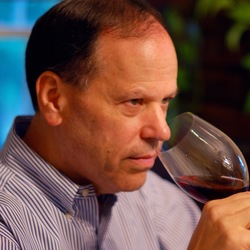



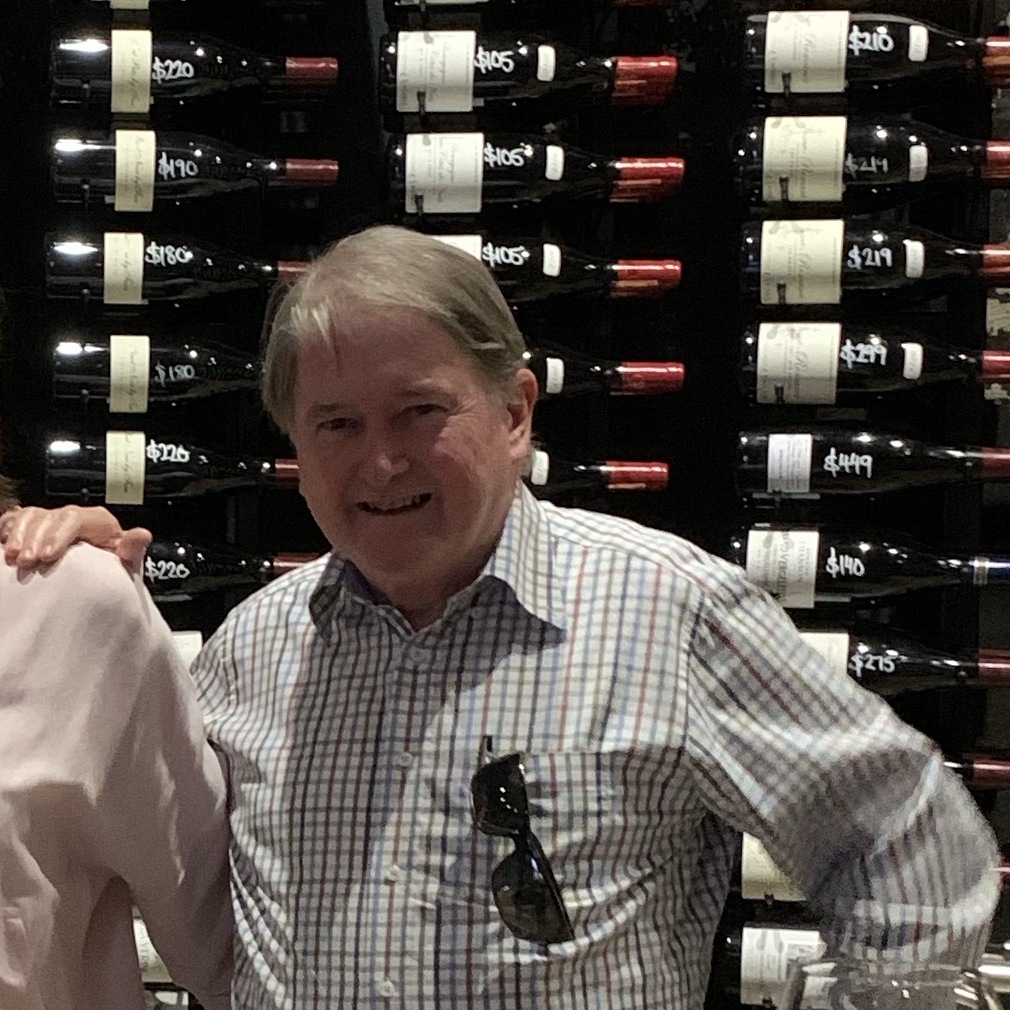

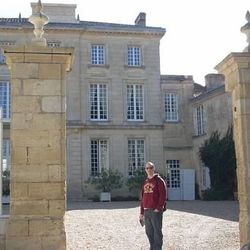

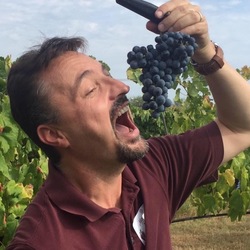
Vanessa
When the weather is in the 80s, an aquatic happy hour is in order!
We’re excited to try this rosé, made primarily from the Tibouren grape, coming from the Côtes de Provence AOC of France.
Clos Cibonne has been in the loving hands of the Roux family since 1793. Due to the hard work and dedication of this family, the vineyard from which this wine comes was among the 18 designated “Cru Classés” in the Côtes de Provence 1950 classification, an indication of its quality. You may attribute Tibouren’s inclusion in the list of legally-permissible varieties in the Côtes de Provence AOC to the Roux family, as well.
This rosé is 90% Tibouren and 10% Grenache. It was made by direct press, giving it a paler hue, fermented in stainless steel, and aged biologically for 12 months in large, 100-year-old oak foudres under a thin layer of yeast (known as a “fleurette”), a process similar to that used to create Fino Sherry in Spain (where the “fleurette” is called the “flor”).
The result is a crisp, elegant expression with delicate lemon, gooseberry, white peach, chamomile, blanched almond, and clay notes. It also has a savory element that I’m having a hard time putting my finger on, perhaps it’s soft white cheese, along with great structure and texture.
Clos Cibonne, Tibouren, Cru Classé, Côtes de Provence, Vintage 2018, ABV 13.5%. — 4 years ago